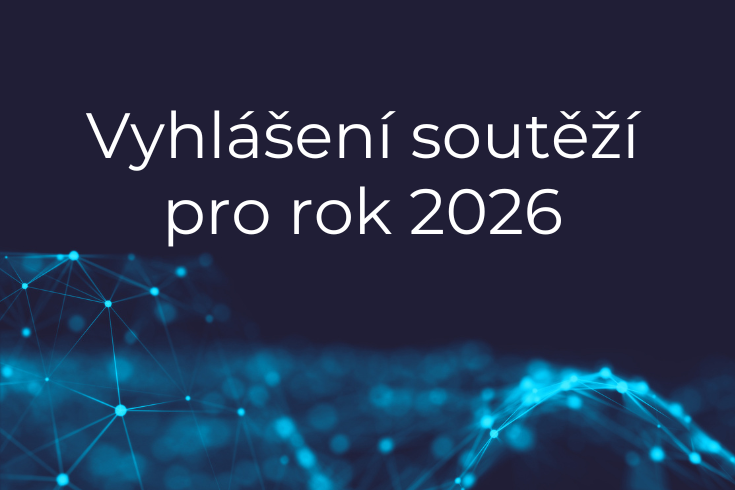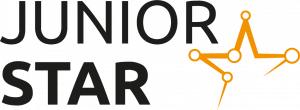
The Czech Science Foundation (GACR) announces calls for project proposals for STANDARD PROJECTS, JUNIOR STAR, POSTDOC INDIVIDUAL FELLOWSHIP, INTERNATIONAL PROJECTS, and a new scheme, the RESTART GRANTS addressing scientists returning to work after a career break.
“The RESTART GRANTS are the biggest news this year. They will help scientists to return to science after a career break, such as a maternity leave, and to lead their own research projects,” says GACR President, Prof. Milan Jirsa. “We believe we can support equality in research and increase the number of female scientists in the Czech Republic, where they are the most underrepresented in Europe.”
Project proposals for projects to be launched in 2026 may be submitted until 3 April 2025. The results of the tenders will be published in late October and late November this year. The results of international tenders and calls will be announced later, depending on our arrangements with the agencies in other countries.
Project proposals will undergo review in a multi-stage transparent evaluation process involving both experts from Czech research institutions and those from abroad. Not a single project gets funded without being reviewed by experts abroad. And the highly selective JUNIOR STAR and EXPRO schemes, expected to be announced next year, involve only experts from other countries in the evaluation process.

Standard projects are the backbone of targeted aid for basic research in the Czech Republic, with GACR having financed hundreds of them each year since its founding in 1993. Through these projects, the best basic research in all areas is supported. Standard projects are usually worked on for three years and their proposals may be submitted by all researchers and their teams without limits on the length of their scientific careers. Project proposals are evaluated on the basis of a multi-level selection process.
- Tender Document – Standard Projects 2026
- Things to Watch For – Standard projects 2026
- Practical information – Standard Projects 2026

The JUNIOR STAR tender is almost always met with great interest by applicants from the ranks of excellent scientists in basic research who are at the beginning of their career (up to 8 years after being awarded their Ph.D. titles) who have had their work published in prestigious international journals and have significant foreign experience. The goal of these five-year projects with a budget of up to 25 million CZK is to give the applicants a chance to gain scientific independence, including potentially founding their own research group to bring new topics into Czech science. Similarly to EXPRO projects, the review of JUNIOR STAR project proposals is carried out solely by external reviewers.

For the third time, GACR is announcing the POSTDOC INDIVIDUAL FELLOWSHIP (PIF) tender this year. This type of grant is aimed at scientists who have finished their doctoral studies in the past four years. It can take two forms – either allowing a Czech scientist to carry out two years of research at a prestigious research centre abroad (with the condition of spending a third year at a research centre in the Czech Republic) or allowing a Czech postdoc or foreign scientist to come carry out research and begin their career at a Czech research centre.
- Tender Document – POSTDOC INDIVIDUAL FELLOWSHIP INCOMING 2026
- Tender Document – POSTDOC INDIVIDUAL FELLOWSHIP – OUTGOING 2026
![]() Announced this year, the RESTART GRANTS are the most recent grant scheme. They will allow excellent scientists to restart their careers after a break due to parental leave or dependent care. RESTART GRANTS address scientists from Czech institutions who have completed their Ph.D.’s in the last ten years (or earlier if they had a career break). Project proposals may be submitted up to two years after the end of a career break related to childcare or dependent care that lasted at least one year. The schedule of the funding will be two to four years, depending on the workload chosen by the scientist.
Announced this year, the RESTART GRANTS are the most recent grant scheme. They will allow excellent scientists to restart their careers after a break due to parental leave or dependent care. RESTART GRANTS address scientists from Czech institutions who have completed their Ph.D.’s in the last ten years (or earlier if they had a career break). Project proposals may be submitted up to two years after the end of a career break related to childcare or dependent care that lasted at least one year. The schedule of the funding will be two to four years, depending on the workload chosen by the scientist.

Projects worked on by scientists and their teams in cooperation with researchers from partner states are a separate category of grants. Project proposals are either evaluated by both agencies (bilateral cooperation), or they are recommended for funding by one agency and the other adopts its recommendations (Lead Agency cooperation).
Bilateral-cooperation
- Taiwan – National Science and Technology Council (NSTC)
- South Korea – National Research Foundation of Korea (NRF)
- Tender Document – International projects – bilateral 2026
- Things to Watch For – International projects – bilateral 2026
Lead Agency
- Austria – Austrian Science Fund (FWF)
- Germany – German Research Foundation (DFG)
- Poland – National Science Centre (NCN)
- Slovenia – Slovenian Research and Innovation Agency (ARIS)
- Switzerland – Swiss National Science Foundation (SNSF)
- Luxembourg – Luxembourg National Research Fund (FNR)
- USA – National Science Foundation (NSF) – GACR is always a partner agency
- Croatia – Croatian Science Foundation (HRZZ)
- LA Terms and Conditions – GACR Lead Agency 2026
- Things to Watch For – International projects – LA 2026
Further international calls based on Lead Agency cooperation may be launched during the year.